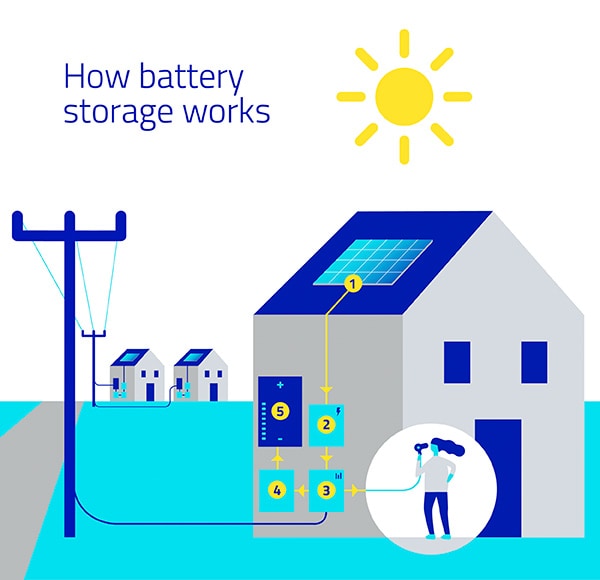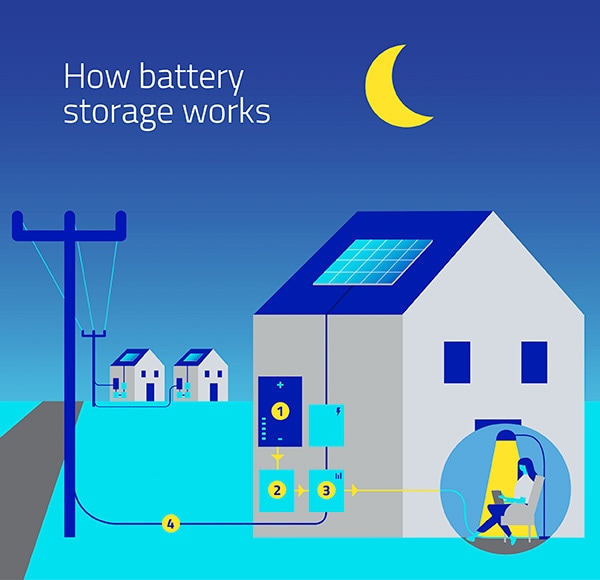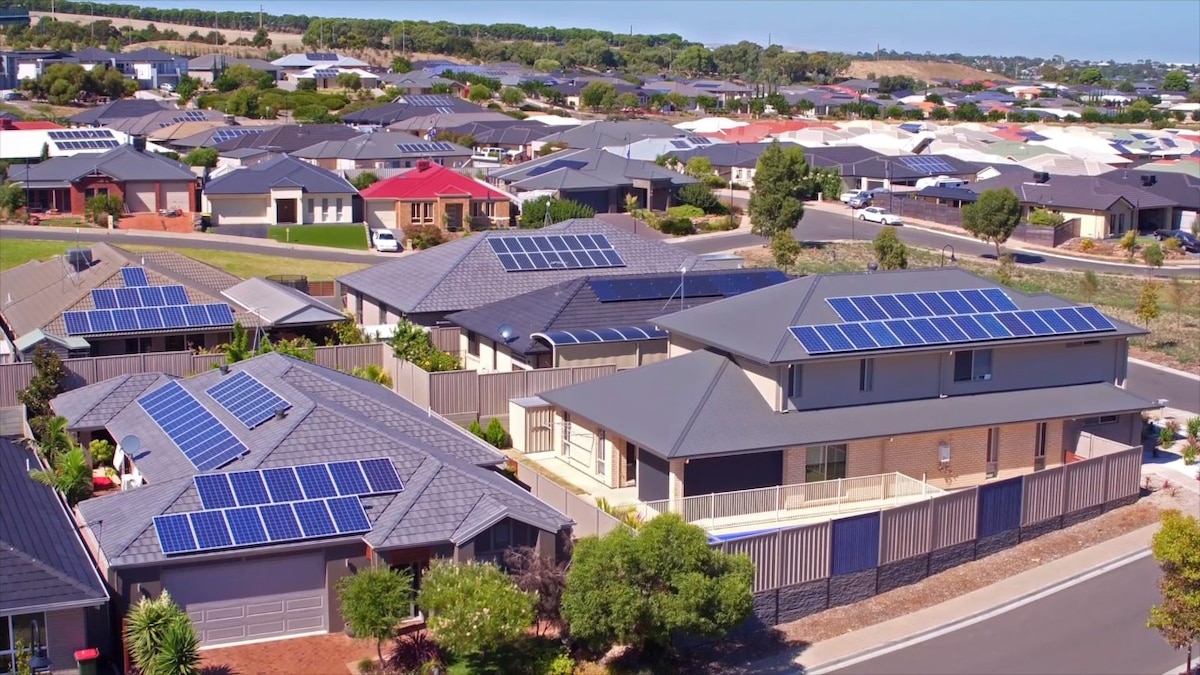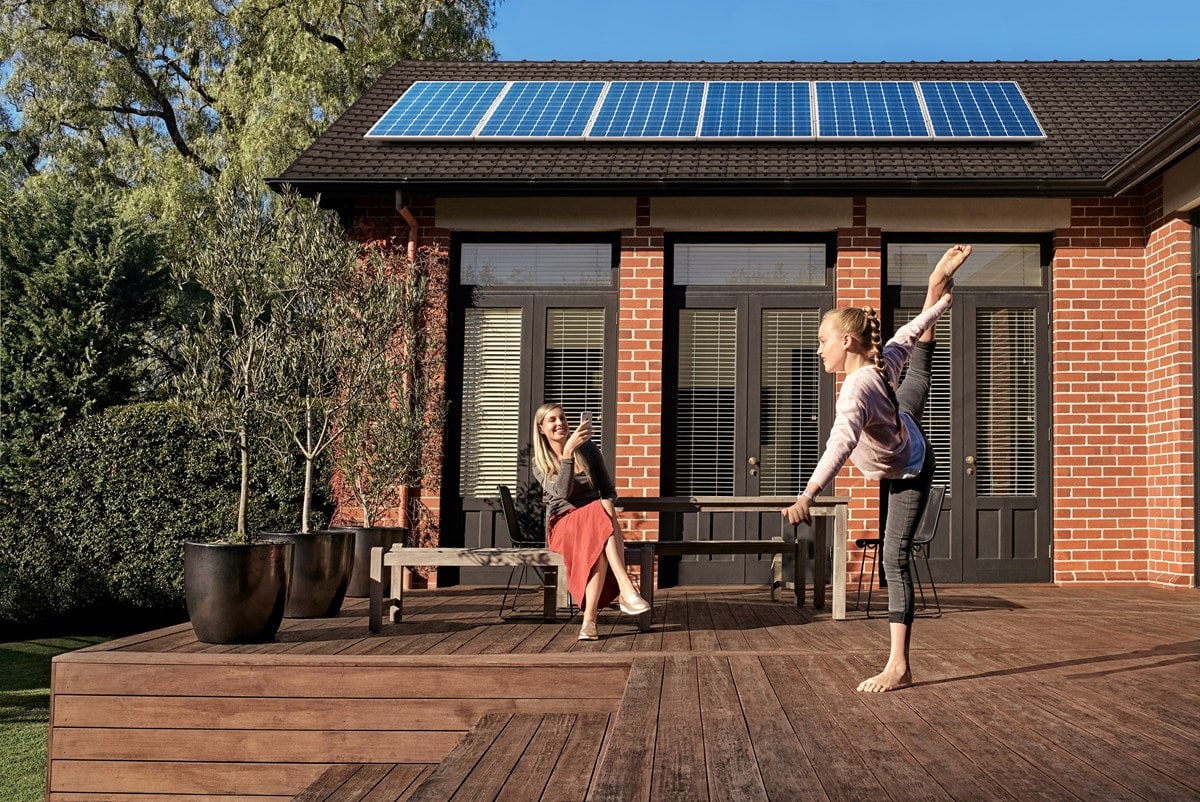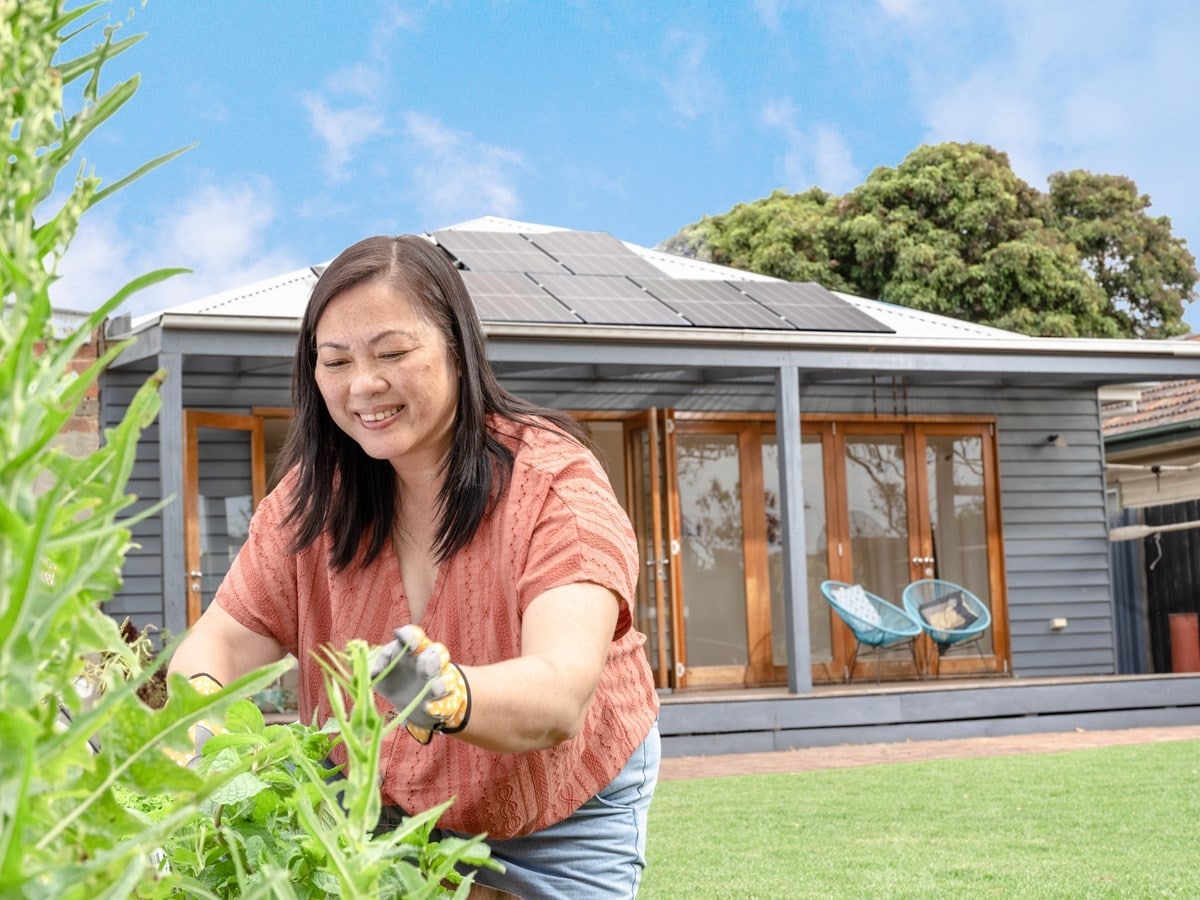The solar panels stop generating energy and the household switches to stored battery energy.
- The battery starts sending energy through the battery inverter to power the home.
- The battery inverter converts the energy into a form that appliances can use.
- The switchboard directs the energy to your appliances.
- When the battery’s charge runs out, the grid will kick in and provide energy to keep your appliances running.
Frequenty asked questions
Is it worth having battery storage?
That depends on your circumstances, including your energy usage patterns, location and financial goals. If you already have a home solar system and you live in an area with frequent power outages, a solar battery storage system could be worth the investment.
If you’re a high energy household, you could also benefit more from battery storage due to the increased savings potential. Keep in mind the payback period can take more than 10 years.
And if sustainability is a high priority, solar batteries also help you reduce your carbon footprint even more by drawing less from the grid.
But if your budget is tight, you may consider delaying solar battery storage to when you can afford the $10,000+ upfront installation costs. You can also look out for state-based government rebates for solar batteries to help ease the expenses.
Is a 10kWh battery enough to run a house?
A 10kWh solar battery can hold 10 kilowatt hours of power. That means it can produce 10 kilowatts (kW) of energy per hour. So if you think about a microwave, which typically uses 1 kW, a 10kWh battery can power it for 10 hours.
Many solar powered households and small businesses opt for 10kWh solar battery storage systems. Whether it’s enough to run your house depends on the energy you consume and how you intend to use the solar battery. It might be enough if you’re planning to use it to power essential appliances like lights and fridges. Or if you simply want battery storage to reduce peak electricity charges or provide backup power during outages. But if you plan to use it to power continuous off-grid living, a higher storage battery may be better.
How long will a 10kWh battery last?
The run time of a 10kWh solar battery is influenced by energy usage. And the amount of energy you consume depends on the type appliances you use – and how long you use them for.
If you’re powering a minimal number of small household appliances like lights and fans, a 10kWh battery can last up to 13-14 hours. But based on the average energy consumption for Australian households during a power outage, it’s more likely to last around 10 hours with ongoing usage.
What is the lifespan of a solar battery?
Battery maintenance, usage patterns and chemistry, as well as environmental conditions, all play a role in the lifespan of your solar battery. Typically, a 10kWh battery will last around 10-15 years for household use. The more common lithium-ion batteries tend to last 10-12 years, whereas LiFePO4 (lithium iron phosphate) batteries can last up to 12-15 years with proper care.
Your charge/discharge patterns, that’s the process of charging the battery then discharging it to provide power, can also impact the lifespan of your solar battery. If you completely discharge (empty) the 10kWh battery, that can shorten its lifespan. Exposure to extreme hot or cold weather can also speed up the degradation of the battery.

